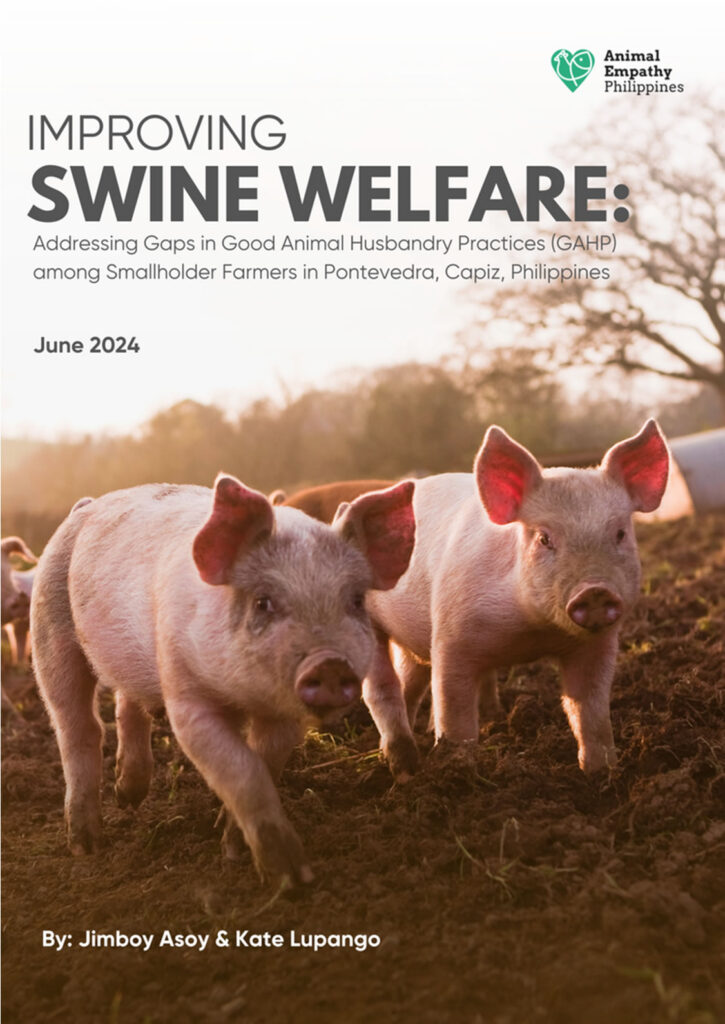IMPROVING SWINE WELFARE
Addressing Gaps in Good Animal Husbandry Practices (GAHP) among Smallholder Farmers in Pontevedra, Capiz, Philippines
The welfare of farm animals is pivotal to animal product quality, yet it is often compromised by various factors including farmers’ capacities, drives, and goals. Farmers’ attitudes towards animal welfare are shaped by their values, beliefs, and experiences. The Animal Welfare Act of 1998, as amended by RA 10631, outlines the standards for animal well-being, emphasizing the need to prevent abuse, ensure proper care, and allow animals to exhibit normal behavior.
In the Philippine swine industry, a significant portion of production is managed by backyard farmers, who constitute 67.5% of the swine population. Despite their crucial role, government policies on animal welfare mainly target commercial farms, leaving smallholders at risk of engaging in harmful practices. The Voiceless Animal Cruelty Index of 2020 highlighted the need for better animal protection legislation in the Philippines, which ranked 19th globally with a performance rating of “E”.
To address this, the Bureau of Agriculture and Fisheries Product Standards (BAFPS) developed the Code of Good Animal Husbandry Practices (GAHP), providing guidelines for proper animal rearing. However, the implementation of GAHP at the local level remains challenging, especially among backyard farmers. This study aims to investigate the application of GAHP among local swine raisers in Pontevedra, Capiz, identifying gaps and recommending evidence-based interventions to improve animal welfare and management practices.
The study’s objectives include describing current husbandry practices, identifying gaps in GAHP adoption, and proposing interventions to enhance compliance and support animal welfare. This research will assess the capacities, constraints, and attitudes of local farmers towards GAHP, providing insights for policy development and effective implementation strategies.
